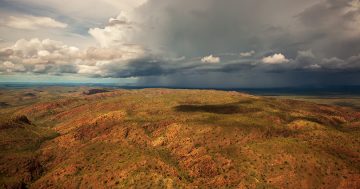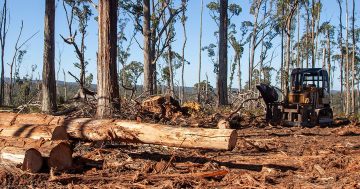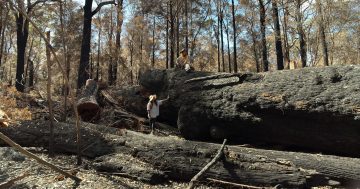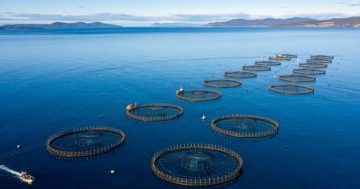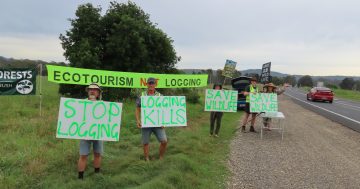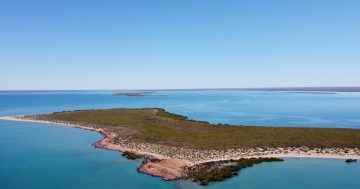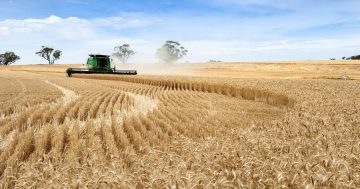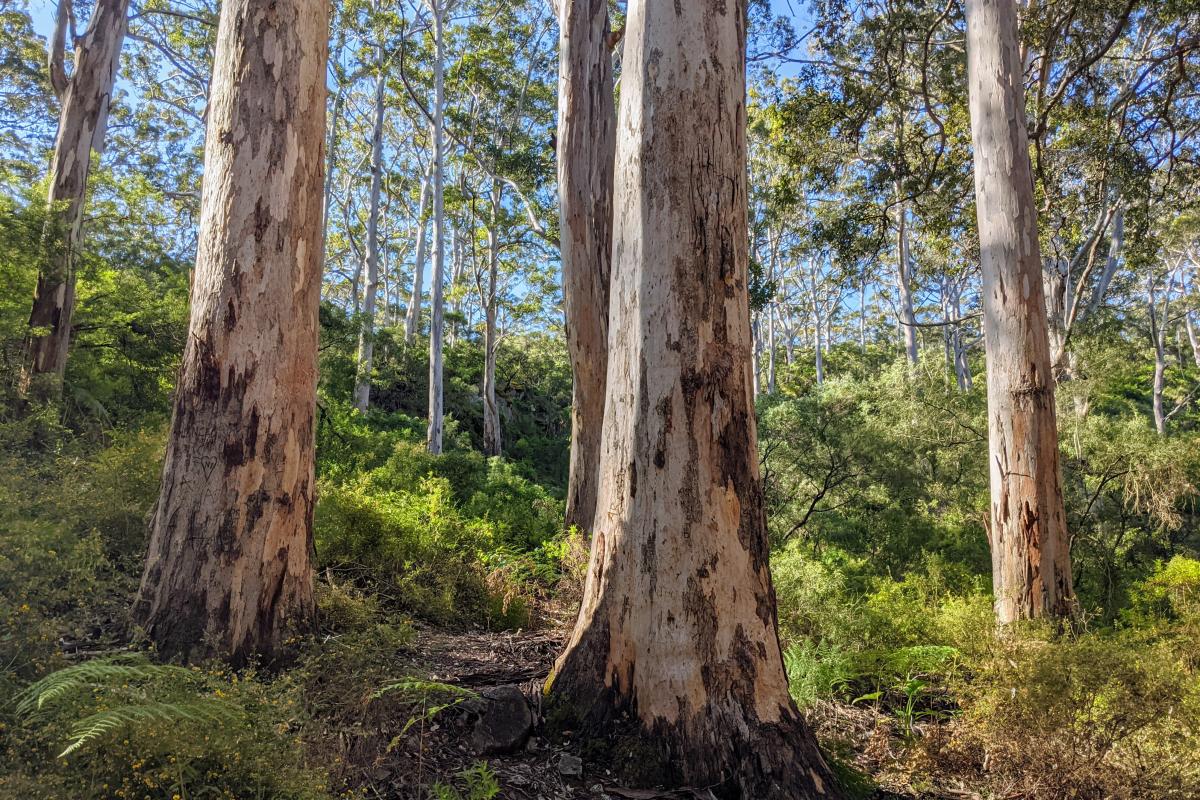
Commercial logging of WA’s native forests is banned effective 1 January. Photo: WA Dept of Biodiversity, Conservation & Attractions.
The Western Australian Government’s promise to end logging in native forests in the state has rung true, with the cessation of all commercial native forest logging operations in the state’s southwest, Great Southern and Peel regions on 1 January.
The move delivers on the government’s September 2021 promise to cease operations by 2024 and means 400,000 hectares of native karri, jarrah and wandoo forests will be spared from commercial exploitation.
WA Environment Minister Reece Whitby said the move comes more than two decades after the logging of old-growth forests ended.
“This decision is a historic moment for WA,” he said. “Our state is now one of the first in Australia to end native logging, a move which will promote conservation and resilience throughout our natural environment.”
It says that, under the new Forest Management Plan, native timber will only be available through ecologically thinning, designed to promote forest health and resilience from drought and bushfires or mine site operations.
As part of the end of large-scale commercial logging, the government has committed $80 million to a Native Forest Transition Plan overseen by Minister for Forestry Jackie Jarvis, which includes significant industry restructure payments to all eligible sawmills. It says funds have also been made available through grants for community development projects, business diversification, and to attract new industries.
The government is also investing $350 million in softwood pine plantations, the timber from which is used extensively in housing construction.
In October 2021, a Native Forestry Transition Group (NFTG) was formed comprising local industry, union and government stakeholders.
These include the Forest Industries Federation Western Australia, Regional Chambers of Commerce WA, shire councils, the Australian Workers Union (AWU), the Chamber of Minerals and Energy of Western Australia, the WA Local Government Association, and the South West Aboriginal Land and Sea Council.
State Government representatives are drawn from the Department of Jobs, Tourism, Science and Innovation, the Department of Training and Workforce Development, the Forests Product Commission, the South Regional Technical and Further Education (TAFE), and the South West Development Commission.
But analysis from a leading forestry management expert says claims the ban will benefit the forests are without substance.
Writing in industry journal The Forester in March 2023, former Senior Principal Research Scientist of WA’s Department of Parks and Wildlife Dr Lachie McCaw said the harvested forests had continued to grow, while uncut forests were in decline.
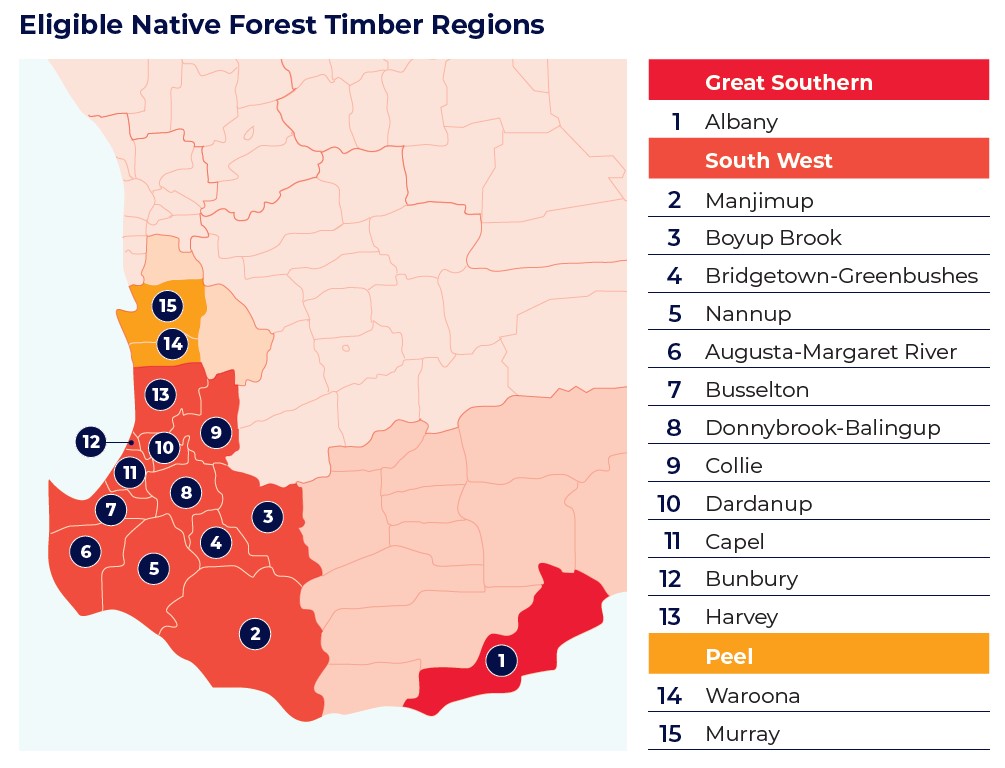
A map showing the regions where native forests will be spared from commercial logging. Image: WA State Government.
Basing his findings on 20 years of data from forest monitoring plots called ForestCheck, which are designed to monitor how forests recover after harvesting and burning, Dr McCaw compared recently cut plots with long undisturbed areas by measuring the growth of trees, the structure of the forest and its biodiversity, and how they change over time.
He said the results show that the forest ecosystem is highly resilient to disturbances like fire and harvesting and recovers rapidly.
When it was announced in 2021, the WA Forestry Alliance described the plan as “huge” and applauded then-Premier Mark McGowan and his ministers for their leadership.


